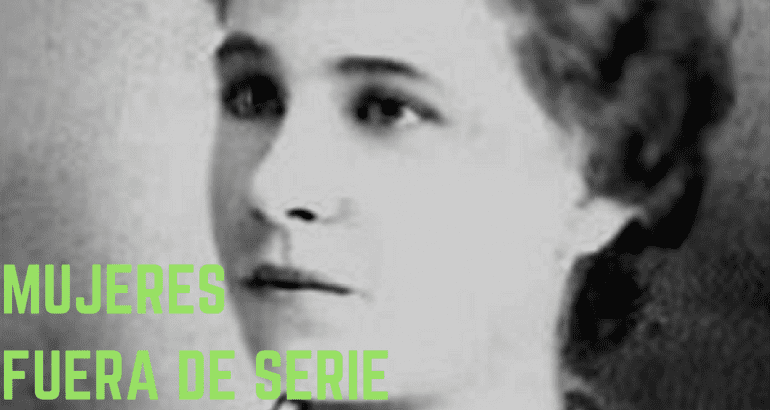
OUTSTANDING WOMEN: KATHERINE LEE BATES (1859-1929)
Catherine Lee Bates (1859-1929)
Katherine Lee Bates was a close collaborator of Alice Gulick since the birth of the International Institute, a very active member of her Corporation and founder of the IIGS League, an organization that emerged within the International Institute to guarantee its financing and its roots in university environments. Americans. In the twenties and as a member of the Board of Directors, she analyzed the proposal presented by the Board for Further Studies that materialized in a material and intellectual collaboration between the International Institute and the Board for Further Studies for almost two decades.
Bates was part of that group of university women involved in the social reform movement in the US that had such an influence on the advancement of American higher education and that were an essential pillar in the development of the IIGS. She of firm religious beliefs like a large part of the women belonging to the first reformism, she was integrated, like Alice Gordon Gulick, in the Congregational Church.
Katherine Lee Bates was born on August 12, 1859, in Falmouth, Massachusetts, where her father was a minister in the Congregational Church. Katherine's education was raised by her mother, Cornelia Frances Bates, a student at Mary Lyon at Mount Holyoke Seminary and a teacher by profession. Bates undertook her college studies at the newly opened Wellesley College, she being a member of her second class (1880). Upon graduation she taught at Dana Hall School, an all-girls school in the area and linked to her alma mater. In 1885 she joined the Department of English Literature at Wellesley College, where she pursued a brilliant career until her retirement in 1925. The 1890-91 term was spent at Oxford University.
Known for her famous poem "America the Beautiful," it reflects her impressions from an 1893 excursion to Pike's Pine in Colorado. The first version was published by The Congregationalist weekly on July 4, 1895.
In addition to his teaching career, he published more than forty books, including his own poetry -on some occasions under the pseudonym of James Lincoln-, also translations from Spanish and Icelandic, works of children's literature and critical editions. He also published travel books resulting from his visits to Europe and the Middle East during his sabbaticals. In 1899 he traveled to Spain sent by the "New York Times" to report on this country after the war in Cuba. In his articles, Bates describes different aspects of Spanish society at the time, without failing to observe the situation of women in Spain, from which he concludes: "the urgent need today is a more liberal and solid education for Spanish women." The articles submitted to the New York daily were collected in one volume, Spanish Highways and Byways, published in 1900.
For twenty-five years he maintained a close relationship with his colleague katherine coman, also a member of the Board of Directors of the International Institute. Coman was a professor of economics at Wellesley College as well as a poet. They jointly published English History as Taught by English Poets. Following her death in 1915, Bates published Yellow Clover: A Book of Remembrance, a collection of poems about Katherine Coman.
During the progressive era, Wellesley College faculty enthusiastically joined various social causes, so much so that Patricia Palmieri refers to Wellesley as an "incubator of reformers." Katherine Bates and Katherine Coman, along with their colleague Vida Scudder, were active in social reform movements. Katharine Coman founded a club for working girls in Boston and was a trustee of the Massachusetts Consumers League. She was also part of the group that in 1892 founded Denison House, a shelter in a working class neighborhood of Boston in the style of Hull House founded by Jane Addams in the city of Chicago.
Katherine Lee Bates retired from Wellesley College in 1925 and died four years later in her seventies at her home in Wellesley.
References:
Woman's who's who of America; a biographical dictionary of contemporary women of the United States and Canada. 1914; Bates, Katherine Lee, Spanish Highways and Byways; Burgess, Dorothy, Dream and Deed: The Story of Katherine Lee Bates; Guardia, Carmen de, “Cultural Diasporas. The Spanish Republicans and the transformation of American Hispanism”. Hispanic Myriad. Vol.1 Pgs. 119-130; Palmieri, Patricia Ann, In Adamless Eden: the Community of Women Faculty at Wellesley New Haven, Yale University Press, 1995; Zulueta, Carmen de, One hundred years of education for Spanish women. History of the International Institute. Madrid. Castalia, 1992.



